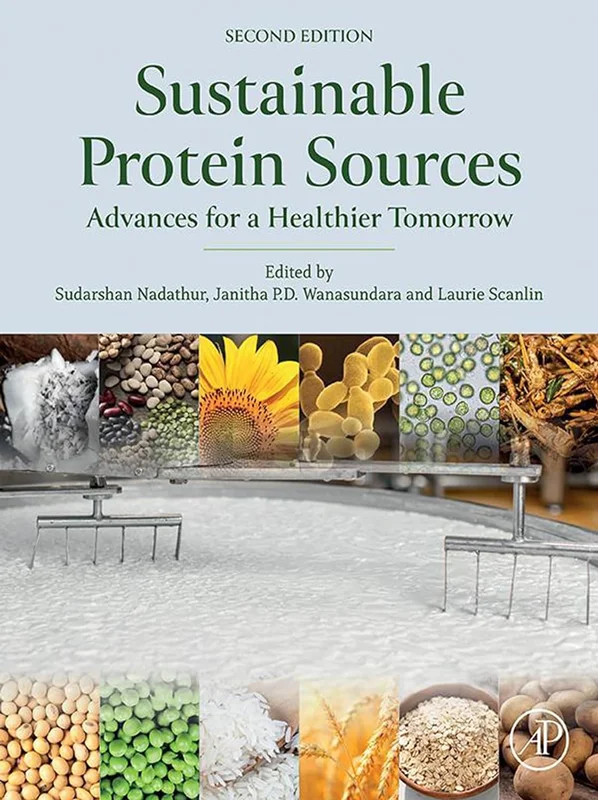Sustainable Protein Sources: Advances for a Healthier Tomorrow
2nd Edition, Sudarshan Nadathur, Janitha P.D. Wanasundara, Laurie Scanlin, B0CNNKQ14T, 032391652X, 0323916538, 9780323916523, 9780323916530, 978-0323916523, 978-0323916530, 978-0-323-91652-3
English | 2024 | PDF | 17 MB | 717 Pages
Sustainable Protein Sources: Advances for a Healthier Tomorrow, Second Edition explores alternative proteins, including plant, fungal, algal and insect proteins that can take the place of meat as sustainable sources to satisfy human protein needs. This revised edition presents the benefits of plant and alternative protein consumption, including those that benefit the environment, population, and consumer trends and contains new chapters on potato protein, faba bean, chickpea, and coconut. Organized by protein, chapters also cover cereals and legumes, oilseeds, pseudocereals, fungi, algae, insects and fermentation-derived dairy and meat proteins paying particular attention to the nutrition, uses, functions, benefits, and challenges of each.
The book also explores ways to improve utilization and addresses everything from consumer acceptability, methods of improving the taste of products containing these proteins and ways in which policies can affect the use of alternate proteins. In addition, the book addresses sustainable protein as a pathway to securing the food supply and considers regenerative versus extractive agriculture alongside new methods in farming and water usage.
- Introduces the need to shift from animal-derived to plant-based protein and fermentation derived proteins
- Discusses nutritive values of each protein source and compares each alternate protein to more complete proteins
- Provides an overview of production, including processing, protein isolation, use cases and functionality

